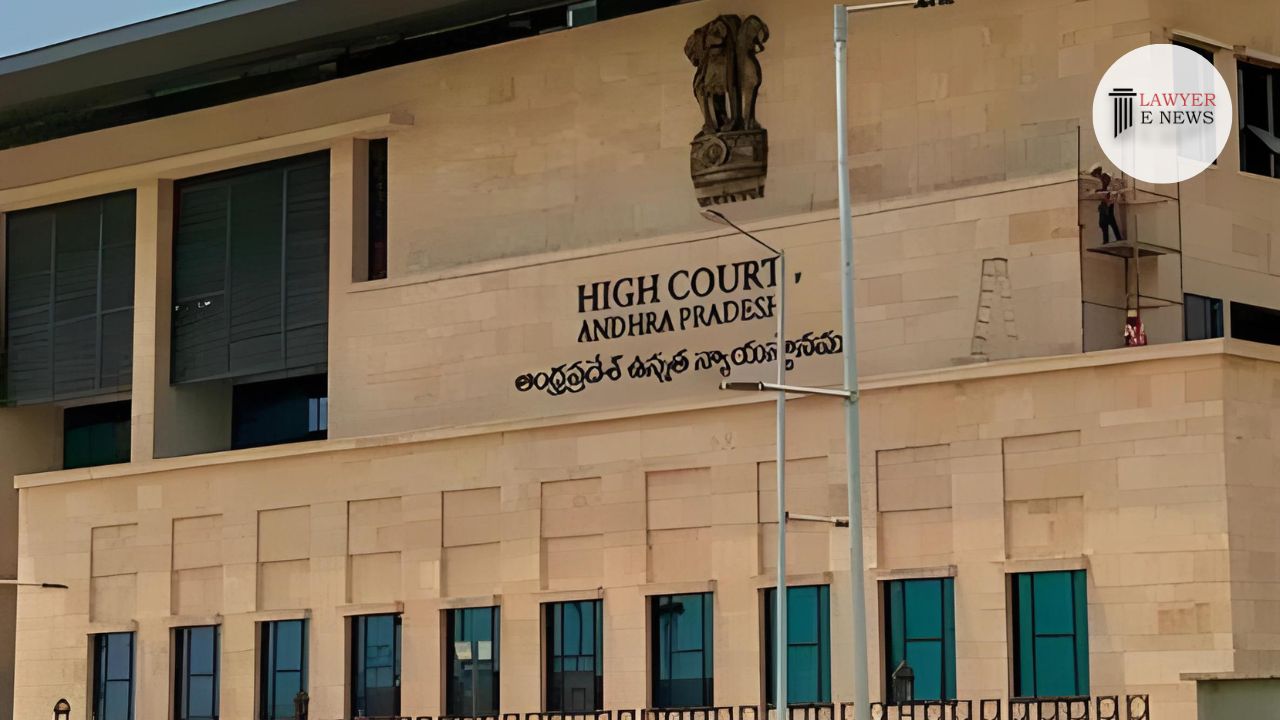-
by Admin
15 February 2026 5:35 AM



In a notable recent judgeent, the Andhra Pradesh High Court held that the petitioners were entitled to regularization as they had been continuously employed for more than 10 years in sanctioned posts without interruption. Despite receiving time scale benefits similar to regular employees, their services had not been regularized, which the Court found unjustified.
Andhra Pradesh High Court ruled on a batch of writ petitions filed by G. Ramakrishna and others against the State of Andhra Pradesh and its various departments. The petitioners, employed as NMRs or daily wage workers in government departments and municipal corporations, sought the regularization of their services, arguing that they had been continuously employed for over 10 years, entitling them to regularization under established legal principles. The Court ruled in their favor, ordering the respondents to regularize their services within four months.
The petitioners, who were employed on daily wage or NMR basis in various government departments, municipal corporations, and public sector bodies, had served for periods ranging from 10 to over 30 years. They had been granted time scale and other benefits similar to those of regular employees, but their services had not been regularized. The respondents argued that the petitioners were ineligible for regularization because they had not completed 5 years of service by 25/11/1993, as required by G.O.Ms.No.212, dated 22/04/1994.
The petitioners challenged the inaction of the respondents, citing the Umadevi judgment of the Supreme Court, which mandates regularization for employees with more than 10 years of continuous service in sanctioned posts. They also referred to decisions in Kodali Raju v. APSRTC (2007) and C. Mahender v. Pottisreeramulu Telugu University (2020), where similarly situated employees were granted regularization.
The key legal issues in this case revolved around the petitioners' eligibility for regularization under the Umadevi judgment (2006) and whether the 5-year requirement under G.O.Ms.No.212 could prevent their regularization. The petitioners argued that they had been working for more than 10 years without interruption and in sanctioned posts, making them eligible for regularization under Umadevi and its subsequent clarifications in M.L. Kesari (2010).
The respondents, on the other hand, contended that the petitioners could not be regularized because they did not meet the 5-year requirement set out in G.O.Ms.No.212, and further argued that their initial appointments were not in accordance with proper recruitment procedures.
The Court cited the Umadevi judgment (2006) and its clarification in M.L. Kesari (2010), which established that employees who had served for more than 10 years in sanctioned posts without court protection were entitled to regularization. The Court held that the 5-year requirement under G.O.Ms.No.212 was no longer relevant after the Umadevi ruling. The petitioners had completed more than 10 years of service and were allowed to draw time scale benefits, which further supported their claim for regularization.
The Court found that the petitioners had been working in their respective departments for more than 20-30 years, and the continuation of their service indicated the existence of vacant posts. The respondents had not filled these vacancies, which, according to the Court, demonstrated the availability of sanctioned posts for regularization.
The petitioners relied on several precedents, including Kodali Raju v. APSRTC (2007) and C. Mahender v. Pottisreeramulu Telugu University (2020), where similarly placed employees were granted regularization. The Court found that the principles laid down in these cases applied to the present petitions and held that the petitioners were entitled to be regularized.
The respondents' argument that the petitioners did not meet the 5-year requirement under G.O.Ms.No.212 was rejected by the Court. The Court noted that the Supreme Court's ruling in Umadevi overruled this requirement and that the petitioners' long-term service and receipt of time scale benefits were sufficient grounds for regularization.
The Court allowed the batch of writ petitions, directing the respondents to regularize the services of the petitioners from the date of completion of 10 years of service. The respondents were ordered to complete the regularization process within four months. The Court also set aside the impugned orders that denied regularization to the petitioners, stating that these orders were contrary to law, illegal, and arbitrary.
Date of Decision: October 18, 2024
G. Ramakrishna and Others vs. The State of Andhra Pradesh and Others
